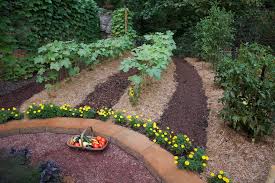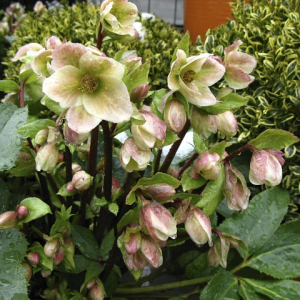Mulching … a must
Keith Mundy
In my opinion as a horticulturist, nurseryman and gardener, mulching garden beds, whether shrub or vegetable, is one of the most beneficial tasks that you can undertake. The benefits are many, from weed suppression to moisture retention and, just as important, as an insulator against frost and heat.
There are many products available and the type we use depends on several factors.
Do you want the mulch to be a short or long term solution? The decision comes down to whether the garden or plant you are mulching is something like a vegetable or flower garden or a permanent shrubbery or tree planting.
In the case of the flower or vegetable garden there are two methods of mulching: a soft mulch like sugar cane or straw, or shredded cow manure.
In both cases these products are short term but are of great benefit to the garden. Both decompose over a short period, and through their decomposition process retain moisture around the plants and improve the structure and the texture of the soil.
The long term benefits of this are an improved ability for the soil to retain moisture but, more importantly for the plant, to take up nutrient and develop a good root system which in turn helps it through periods of stress.
The other forms of mulches like gravel and woodchips are more long term and should only be used on shrub beds and around trees. Wood chips, whether hardwood (Eucalyptus) or softwood (pine), also have a shelf life but their ability to retain moisture for the plants is better than no mulch. Wood chips have one issue—in their decomposition process they tie up the nitrogen available to the plant so regular supplementary fertilising is required to counter this.
 My favourite form of mulch is a river gravel, which is usually a by-product from sand dredging along rivers. Although some people will say that this is not that necessarily friendly for our environment, the benefit for our plants should take precedence.
My favourite form of mulch is a river gravel, which is usually a by-product from sand dredging along rivers. Although some people will say that this is not that necessarily friendly for our environment, the benefit for our plants should take precedence.
Gravel mulch has great benefits like not blowing away in strong winds, particularly in coastal gardens, and that it is usually a one-off application, as it doesn’t decompose like wood and straw mulches. If you live in a fire-prone area, gravel does not burn and therefore is of great benefit. It is a bit more expensive than the wood mulches but in most cases is a one off application. A minor top up in several years might be required.
A few other things to consider when using mulches are that mulch can prevent light showers of rain reaching the soil surface thus robbing the plants of moisture. In dry periods it is advisable to rake back the mulch from around the plant trunk, saturate the soil and then place the mulch back. Similarly when applying fertiliser the process should be repeated.
Call into your local nursery and discuss your situation with the nursery person. Undoubtedly you will be given the right information for your situation.


